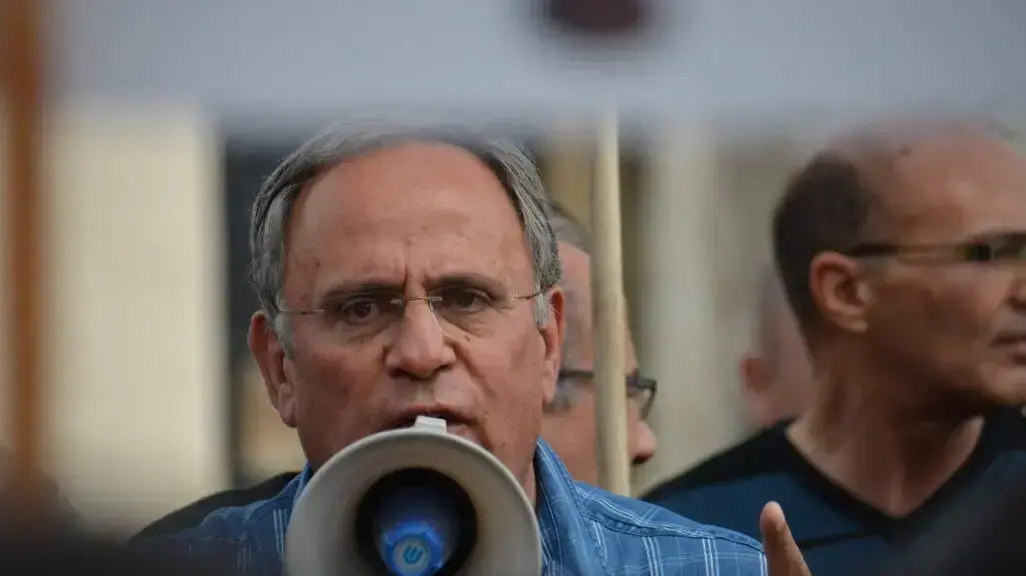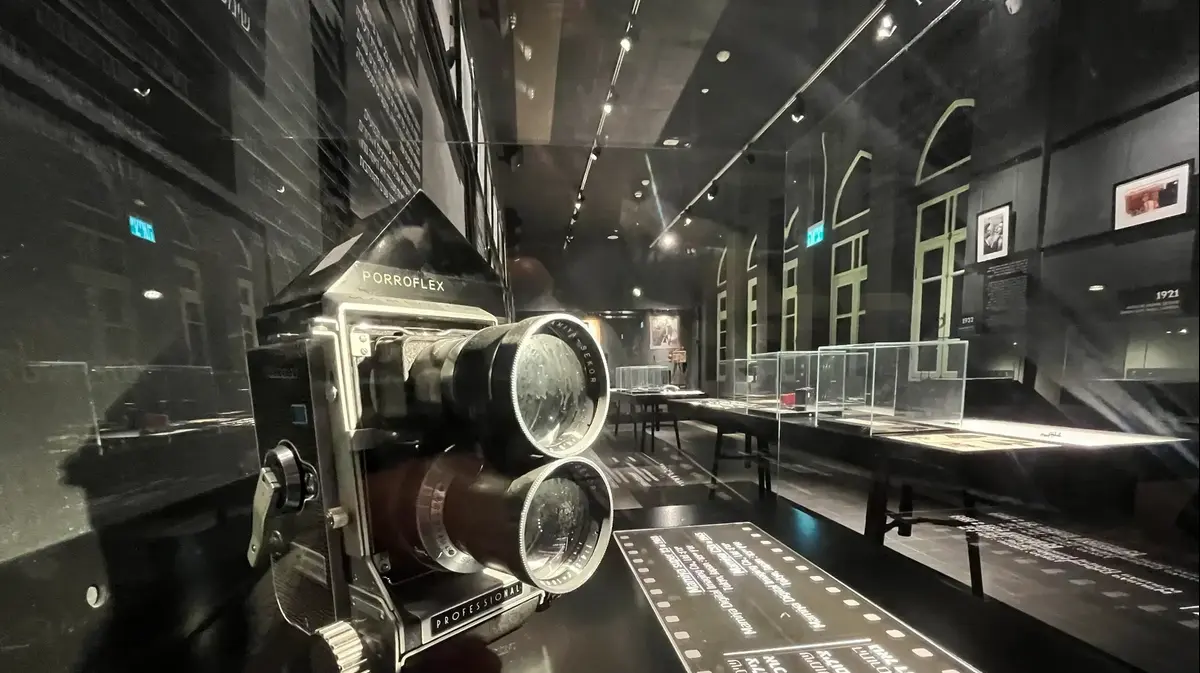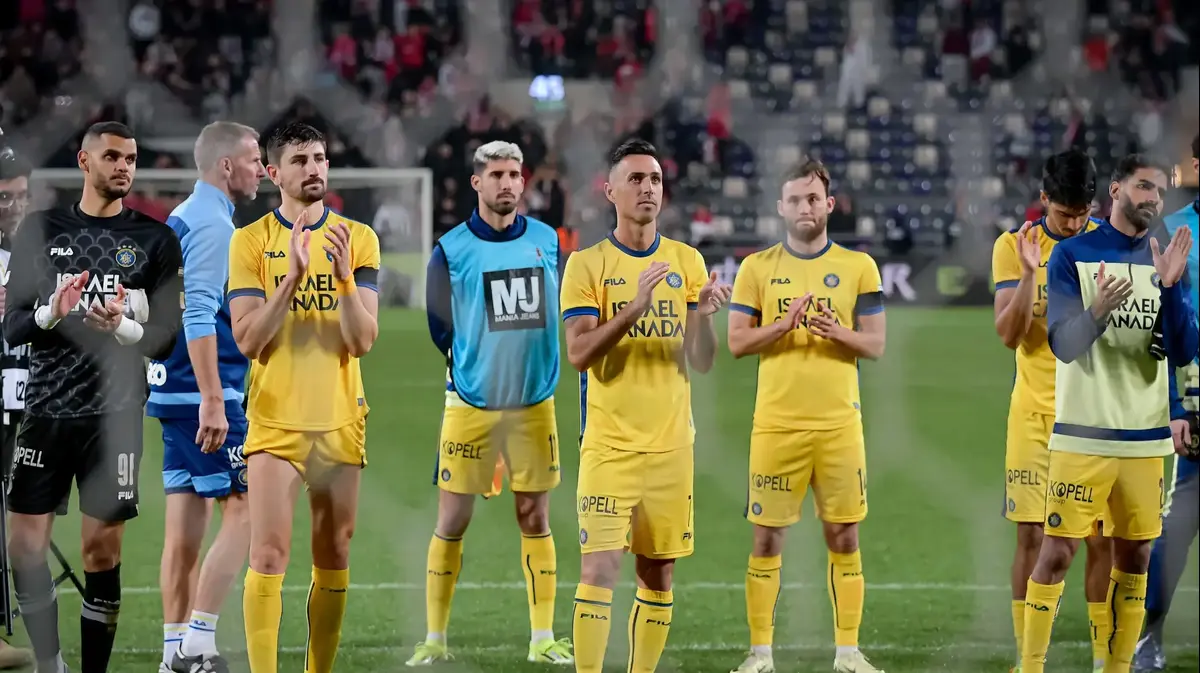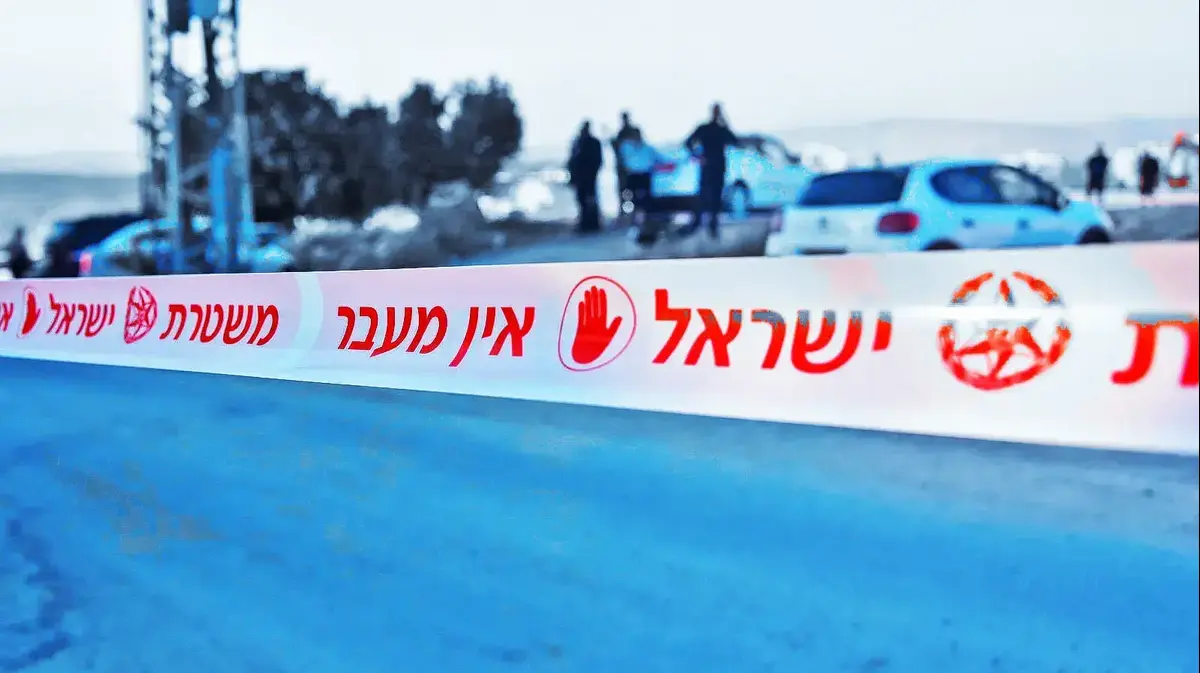marching song
"He could not stand injustice": the story of a working class fighter from Be'er Sheva
Meir Babioff, a veteran of the Israel Workers' Union, passed away two weeks ago.
Always fighting for their rights, always with a megaphone and in speeches in front of protesters, sometimes dragged by police.
"Be direct - did not hide his feelings"
Eli Ashkenazi
25/06/2022
Saturday, 25 June 2022, 12:30 Updated: 13:02
Share on Facebook
Share on WhatsApp
Share on Twitter
Share on Email
Share on general
Comments
Comments
A working class fighter from Be'er Sheva.
Meir Babioff (Photo: Walla !, Yakir Oknin)
The figure of Meir Babioff has been known for the past decades in every struggle for workers' rights in the Negev.
More than once he was dragged by police, always with a megaphone near his mouth, speaking to the protesters.
Babioff was a veteran of the Histadrut in Israel, with 50 years of experience, of which 27 years as chairman of the Negev region in the Histadrut. He died two weeks ago and he is 72.
He was born in January 1950, to Moshe and Tzila Babioff. Before the outbreak of World War II, her entire family remained in Poland and perished in the Holocaust. Whose occupants fled during the War of Independence, with four other families living in the house.
David Peretz from "Israel Today" Babioff said: "We did not get to know my father, who is free and free from the hardships of earning a living, but he was a mandolin artist, and played every instrument he could find."
Perhaps then, as a child, his identification with the working class struggled for the survival of their families and longed for a dignified livelihood.
The Babiofs had another son and daughter and the young couple fought for their livelihood.
In those years of scarcity and austerity in Israel, the family migrated between different localities in the father's journey to find sources of livelihood.
They passed in a short time in Haifa, in Moshava Menahemia, and then arrived at Kibbutz Neve Ilan, then a settlement on the border line.
However, economic and social problems led to the disintegration of the kibbutz.
The family moved to Be'er Sheva, where the father found work in the water department.
"We did not get to know my father, who is free and free from the hardships of earning a living."
Babioff (Photo: Walla !, courtesy of those photographed)
"We lived in a 34-square-meter apartment, with a concrete floor and no shutters in the windows," Babioff said about two and a half years ago, on his 70th birthday.
"I was a humble and shy boy from a poor family, but there I got the opportunity to study, and in all the subjects I loved - history,
"
"Literature, the Bible, mathematics. I was an outstanding student," he told Peretz.
In the army he served in the Armored Corps.
Initially in the 7th Brigade, where he was discovered as an outstanding gunner with training ability.
Following this, he was transferred to the training base of the Armored Corps in the Julis camp and was an artillery instructor.
The commander of the artillery section at the time was Avigdor Kahalani, who arrived after a year of recovery from a serious injury in the Six Day War.
When he was released he planned to start working and then study.
In a chance meeting with an acquaintance, he said that he was looking for a job, she pointed him to the Histadrut building opposite and told him that they were looking for a youth guide.
Babioff entered a building that became the center of his life.
He started as a youth instructor and then moved on to the trade union.
Babioff was a member of the Histadrut in the mid-1980s, a group of young people who began to take on key positions in the veteran workers' organization.
"Despite their relatively young age, they feel like the flesh and blood of this institution," Avshalom Ginosar wrote about them at the time in Maariv.
"Almost an antithesis to the mythological image of a silver-haired activist, a veteran Mapaynik, an Ashkenazi, with a cup of tea in hand.
Most of them, by the way, drank coffee in a meeting with me.
And another common feature, perhaps the most important - everyone is very caring. "
Babioff with the record released by his daughter, Noa (Photo: Walla !, courtesy of those photographed)
By then, Beuf had already begun to stand out on the front lines of workers' struggles in the South, sometimes in creative ways.
In 1988, for example, when the "fireproof" tile factory of the "Koor" company collapsed, Babioff and his friends from the Histadrut led a move to turn the factory into a cooperative owned equally by its employees.
"He did not rest, neither during the day nor at night," the workers said of Babioff to Aryeh Caspi from the weekly "Headline" who arrived in Be'er Sheva at the time, to be impressed by the interesting experience.
He was identified with many other workers' struggles, including a struggle in 2005 by the drivers of the public transportation company in Be'er Sheva, "Metrodan."
This struggle was also the inspiration for a play written by Joshua Sobol called "The Leader of the Working Class."
Babioff was in fact the one who educated Rubik Danilovich, the mayor of Be'er Sheva, in the political world.
Danilovich was 21 years old when he happened to meet Babioff at the store and following the conversation that developed, they got in touch and they walked a long way together.
"I was privileged to start my journey with Meir. He opened the door for me. It started with a spark of love, something that connects the hearts," Danilovich said on Babioff's 70th birthday.
"I learned a lot of good things from Meir that helped me succeed in politics. He was my best school for life - how to do things best and accurately, sometimes obsessively. At some point our paths parted, but love and appreciation never end. He is a loyal public messenger who does it in a way. "It's a living enterprise."
Danilovich noted the fact that Beebioff "could not tolerate injustice - I remember mostly the struggle of the court typists. He accompanied their struggle non-stop," he said.
Meir and Batsheva Babioff (Photo: Walla !, courtesy of those photographed)
Another struggle that Beioff was one of the leaders of began in 2001, following the decision of the Ariel Sharon government to repeal the "Negev Law," which was intended to provide benefits to southern communities.
He was at the forefront of the struggle and sent thousands of workers to stormy demonstrations, which more than once demanded police intervention.
At the same time, Babioff was active in the Labor Party, and although the Histadrut apparatus was affiliated with Shimon Peres and Israel Caesar, he chose to belong to the Yitzhak Rabin camp in the party.
A friendship developed between the two.
On the Saturday evening when Rabin was assassinated, Babioff was at a performance by Yehoram Gaon in the Histadrut's culture hall in Be'er Sheva.
He said that after hearing the hard news, he left the hall and collapsed in the parking lot.
Babioff married Batsheva and the couple had three children - Adi, Shira and Noa.
He and his wife have traveled to many places in the world.
He loved to photograph and cook, especially Bukharian dishes.
On his last birthday his family put out a booklet with the recipes he used to make.
"My father lived for Friday meals and did not give them up no matter what. Even if he went through a difficult struggle at that time," his daughter Noa wrote.
Like his father, Meir also loved music, the Beatles were his great love and he even took his two daughters on a "roots journey" following the Beatles in Liverpool.
Noah the daughter, a musician and singer, said she was influenced by her father and his great love of music.
She said he had a large collection of records, made up mostly of artists from England and the US who were successful in those influential decades - the 60s and 70s. One of those influential protest singers of those days was John Baez. On a trip to the US with his daughter Noa, they went to her show and he even managed to bring his daughter together with the famous singer.
The father and daughter also visited the town of Woodstock, not far from which in August 1969 the famous music festival was held which symbolized the spirit of rebellion of that period.
A few years ago, Beyuf contracted cancer several times and recovered, but about six months ago, he contracted the corona virus and despite the vaccines, this led to a lengthy hospitalization in the corona ward at Soroka Hospital in Be'er Sheva.
Against the backdrop of the depressed immune system he had following years of battling cancer, which he won, and backdrop of complications created by the same lengthy hospitalization the Corona forced on him, Beyoff, who in days as repairs moved mountains and hills so people could cross, breathed his last June 7, 2022.
news
News in Israel
Events in Israel
Tags
marching song















